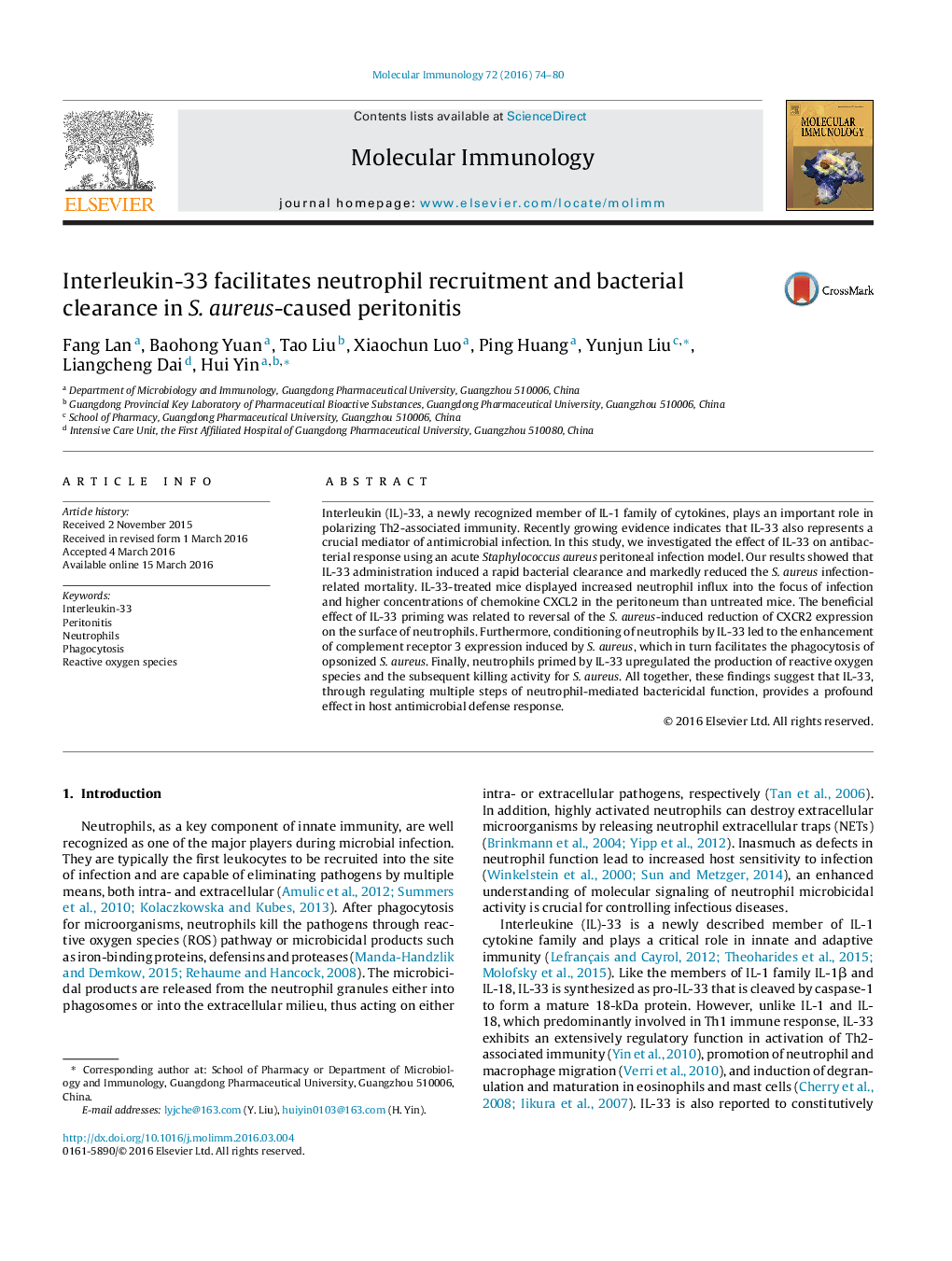| Article ID | Journal | Published Year | Pages | File Type |
|---|---|---|---|---|
| 2830571 | Molecular Immunology | 2016 | 7 Pages |
•We examined the role of IL-33 on acute peritoneal infection induced by S. aureus.•IL-33 accelerates bacterial clearance and reduces the mortality caused by S. aureus.•IL-33 facilitates the expression of CXCR2 and infiltration of neutrophils into the infectious site.•IL-33 priming also are crucial for phagocytic and killing activities of neutrophils for S. aureus.
Interleukin (IL)-33, a newly recognized member of IL-1 family of cytokines, plays an important role in polarizing Th2-associated immunity. Recently growing evidence indicates that IL-33 also represents a crucial mediator of antimicrobial infection. In this study, we investigated the effect of IL-33 on antibacterial response using an acute Staphylococcus aureus peritoneal infection model. Our results showed that IL-33 administration induced a rapid bacterial clearance and markedly reduced the S. aureus infection-related mortality. IL-33-treated mice displayed increased neutrophil influx into the focus of infection and higher concentrations of chemokine CXCL2 in the peritoneum than untreated mice. The beneficial effect of IL-33 priming was related to reversal of the S. aureus-induced reduction of CXCR2 expression on the surface of neutrophils. Furthermore, conditioning of neutrophils by IL-33 led to the enhancement of complement receptor 3 expression induced by S. aureus, which in turn facilitates the phagocytosis of opsonized S. aureus. Finally, neutrophils primed by IL-33 upregulated the production of reactive oxygen species and the subsequent killing activity for S. aureus. All together, these findings suggest that IL-33, through regulating multiple steps of neutrophil-mediated bactericidal function, provides a profound effect in host antimicrobial defense response.
